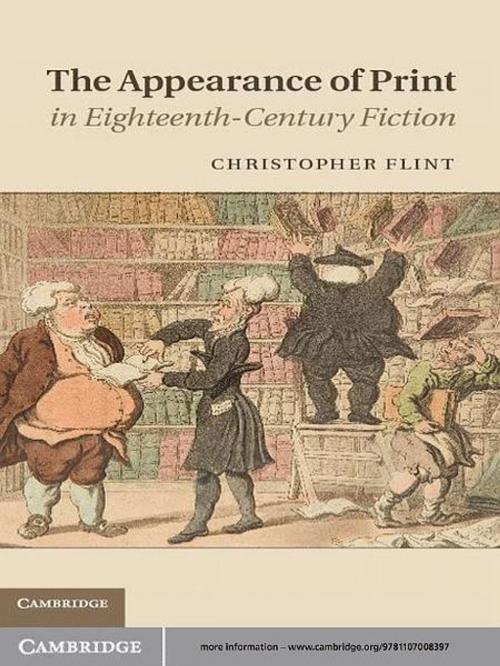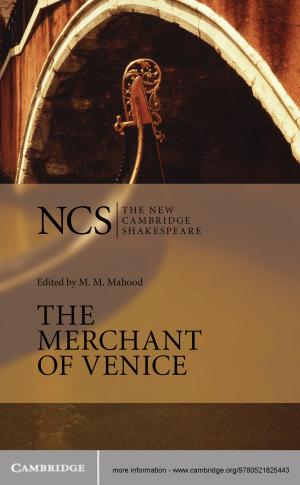The Appearance of Print in Eighteenth-Century Fiction
Fiction & Literature, Literary Theory & Criticism, British, Business & Finance| Author: | Professor Christopher Flint | ISBN: | 9781139125031 |
| Publisher: | Cambridge University Press | Publication: | September 8, 2011 |
| Imprint: | Cambridge University Press | Language: | English |
| Author: | Professor Christopher Flint |
| ISBN: | 9781139125031 |
| Publisher: | Cambridge University Press |
| Publication: | September 8, 2011 |
| Imprint: | Cambridge University Press |
| Language: | English |
Eighteenth-century fiction holds an unusual place in the history of modern print culture. The novel gained prominence largely because of advances in publishing, but, as a popular genre, it also helped shape those very developments. Authors in the period manipulated the appearance of the page and print technology more deliberately than has been supposed, prompting new forms of reception among readers. Christopher Flint's book explores works by both obscure 'scribblers' and canonical figures, such as Swift, Haywood, Defoe, Richardson, Sterne and Austen, that interrogated the complex interactions between the book's material aspects and its producers and consumers. Flint links historical shifts in how authors addressed their profession to how books were manufactured and how readers consumed texts. He argues that writers exploited typographic media to augment other crucial developments in prose fiction, from formal realism and free indirect discourse to accounts of how 'the novel' defined itself as a genre.
Eighteenth-century fiction holds an unusual place in the history of modern print culture. The novel gained prominence largely because of advances in publishing, but, as a popular genre, it also helped shape those very developments. Authors in the period manipulated the appearance of the page and print technology more deliberately than has been supposed, prompting new forms of reception among readers. Christopher Flint's book explores works by both obscure 'scribblers' and canonical figures, such as Swift, Haywood, Defoe, Richardson, Sterne and Austen, that interrogated the complex interactions between the book's material aspects and its producers and consumers. Flint links historical shifts in how authors addressed their profession to how books were manufactured and how readers consumed texts. He argues that writers exploited typographic media to augment other crucial developments in prose fiction, from formal realism and free indirect discourse to accounts of how 'the novel' defined itself as a genre.















